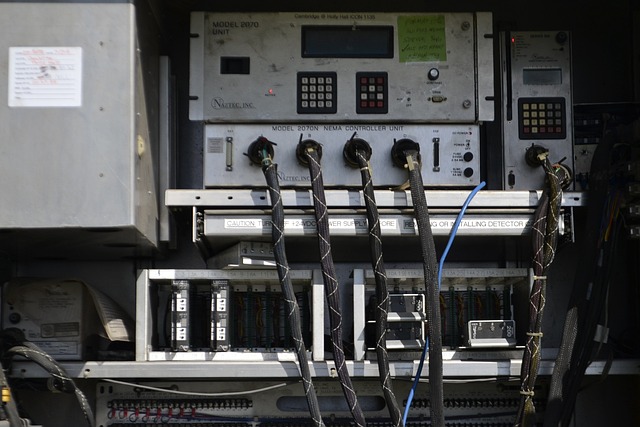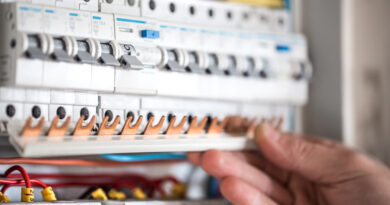Electrical Safety Inspection in Noida
Introduction
Electrical safety is of utmost importance in any setting, be it residential, commercial, or industrial. In Noida, a rapidly growing city in India, the significance of electrical safety cannot be overstated. Electrical safety inspections serve as a crucial mechanism for identifying potential hazards and ensuring the well-being of occupants and properties. This article delves into the world of electrical safety inspections in Noida, highlighting their importance, process, common issues, and the benefits they offer.
Importance of Electrical Safety Inspections
Electrical safety inspections are a proactive approach to safeguarding lives and property from electrical mishaps. Whether you are a homeowner, a business owner, or an industrial facility manager, periodic electrical inspections help in detecting hidden electrical problems and mitigating potential risks.
Understanding Electrical Safety Inspections
3.1. Purpose and Objectives
The primary purpose of an electrical safety inspection is to assess the condition of electrical systems and components. It aims to identify any violations of electrical codes and regulations and recommend corrective actions.
3.2. Components Checked During Inspection
Professional inspectors thoroughly examine various electrical components, including wiring, electrical panels, outlets, switches, lighting fixtures, and grounding systems.
Hiring Professional Electrical Inspectors
4.1. Qualifications and Certifications
When hiring an electrical inspector, ensure they are qualified and certified to perform inspections. Proper credentials guarantee their expertise and knowledge in the field.
4.2. Experience and Track Record
Experience matters in conducting successful electrical safety inspections. Look for inspectors with a proven track record of delivering reliable inspection services.
Electrical Safety Inspection Process
5.1. Pre-Inspection Preparation
Before commencing the inspection, it’s essential to gather relevant information about the building’s electrical system, such as its age, previous inspection reports, and any recent electrical work done.
5.2. Visual Inspection
The inspector starts with a visual assessment of the electrical components, looking for signs of wear, damage, or improper installations.
5.3. Testing and Measurement
Using specialized tools, the inspector tests electrical systems to verify their integrity and safety.
5.4. Identifying Electrical Hazards
The inspection aims to identify potential electrical hazards, such as overloaded circuits, faulty wiring, and outdated electrical panels.
Common Electrical Safety Issues
6.1. Overloaded Circuits
Overloading occurs when too many electrical devices draw power from a single circuit, exceeding its capacity and creating a fire hazard.
6.2. Faulty Wiring
Old or damaged wiring poses a severe risk of electrical fires and electrocution.
6.3. Outdated Electrical Panels
Obsolete electrical panels may not handle modern electrical demands, leading to safety concerns.
6.4. Malfunctioning Ground Fault Circuit Interrupters (GFCIs)
Faulty GFCIs can fail to protect against electric shocks and pose significant risks, especially in wet areas.
6.5. Unsecured Electrical Outlets
Loose outlets can cause sparks, leading to fires and damage to appliances.
Addressing Safety Concerns
7.1. Repair and Maintenance
Once issues are identified, prompt repairs and maintenance are essential to ensure electrical safety.
7.2. Upgrading Electrical Systems
Upgrading outdated electrical systems enhances safety and efficiency, reducing the risk of electrical incidents.
Electrical Safety Tips for Homeowners
8.1. Regular Maintenance
Homeowners should schedule regular maintenance of their electrical systems to prevent potential hazards.
8.2. Safe Usage of Electrical Appliances
Proper usage and care of electrical appliances reduce the risk of accidents.
8.3. Childproofing Electrical Outlets
Using outlet covers prevents children from inserting objects and reduces the risk of electric shocks.
Electrical Safety for Businesses
9.1. Compliance with Electrical Codes and Regulations
Businesses must adhere to electrical codes and regulations to ensure a safe working environment.
9.2. Importance of Routine Inspections
Regular electrical safety inspections are crucial for businesses to avoid downtime and ensure employee safety.
The Cost of Electrical Safety Inspections
10.1. Factors Affecting Inspection Costs
The cost of an electrical safety inspection can vary based on factors like the size of the property and the complexity of the electrical system.
10.2. Return on Investment (ROI)
Investing in electrical safety inspections yields long-term benefits by preventing costly electrical accidents.
DIY vs. Professional Inspections
11.1. Risks of DIY Inspections
DIY inspections can be dangerous and may not identify all potential hazards.
11.2. Advantages of Professional Inspections
Professional inspections provide expertise and comprehensive evaluations, ensuring thorough safety checks.
Conclusion
In conclusion, electrical safety inspections are critical for safeguarding lives and properties in Noida. By hiring qualified professionals, addressing safety concerns, and implementing regular maintenance, individuals and businesses can ensure a secure electrical environment. Prioritizing electrical safety not only prevents accidents but also promotes a thriving community.




